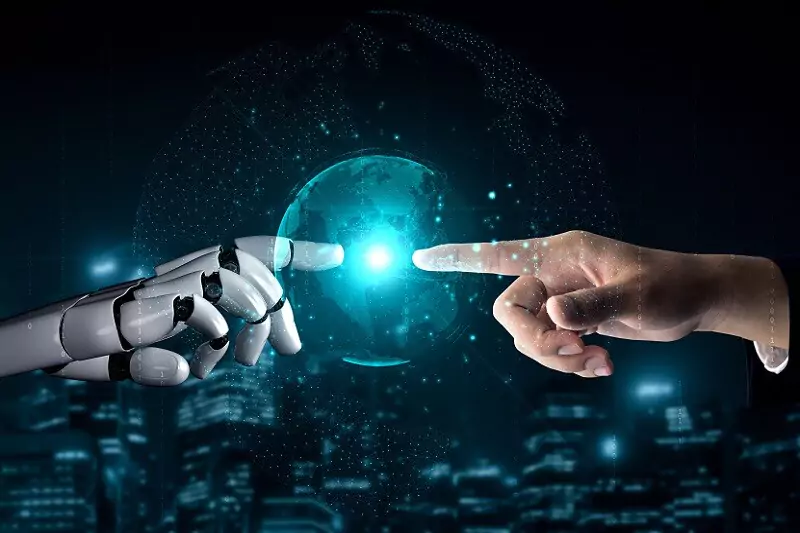Introduction:
Artificial Intelligence (AI) has emerged as one of the most transformative technologies of the 21st century. With its ability to mimic human intelligence, learn from data, and make autonomous decisions, AI has revolutionized various industries, from healthcare and finance to transportation and entertainment. In this article, we will explore the concept of AI, its key components, applications, benefits, and potential challenges.

Understanding Artificial Intelligence:
At its core, AI refers to the simulation of human intelligence in machines that are programmed to think and learn like humans. It encompasses a wide range of subfields, including machine learning, natural language processing, computer vision, robotics, and more. AI systems are designed to perform tasks that typically require human intelligence, such as recognizing speech, understanding images, making decisions, and solving complex problems.
Key Components of Artificial Intelligence:
- Machine Learning: Machine learning is a subset of AI that focuses on enabling machines to learn from data without explicit programming. It involves the development of algorithms that allow systems to automatically improve their performance through experience.
- Natural Language Processing (NLP): NLP enables machines to understand, interpret, and respond to human language. It involves tasks such as speech recognition, language translation, sentiment analysis, and text generation.
- Computer Vision: Computer vision aims to enable machines to understand and interpret visual information from images or videos. It enables applications such as facial recognition, object detection, and autonomous driving.
- Robotics: Robotics combines AI and mechanical engineering to create intelligent machines that can interact with the physical world. Robots equipped with AI capabilities are used in various fields, including manufacturing, healthcare, and space exploration.
Applications of Artificial Intelligence:
AI has found applications in numerous industries, transforming the way we live and work. Here are some key areas where AI is making a significant impact:
- Healthcare: AI is revolutionizing healthcare by assisting in early disease detection, analyzing medical images, drug discovery, personalized medicine, and virtual health assistants. AI-powered algorithms can process vast amounts of patient data and provide accurate diagnoses and treatment recommendations.
- Finance: In the financial industry, AI is used for fraud detection, algorithmic trading, credit scoring, and customer service. AI-powered chatbots and virtual assistants are being employed by banks and financial institutions to enhance customer experiences.
- Transportation: Self-driving cars, powered by AI algorithms, have the potential to transform transportation systems, making them safer and more efficient. AI is also used in optimizing traffic flow, predicting maintenance needs, and managing logistics in the shipping industry.
- Entertainment: AI is reshaping the entertainment industry through recommendation systems, content generation, and virtual reality experiences. Streaming platforms leverage AI to personalize content recommendations based on user preferences, enhancing user engagement.
Benefits of Artificial Intelligence:
The rise of AI brings several significant benefits:
- Efficiency and Productivity: AI automates mundane and repetitive tasks, freeing up human resources to focus on more complex and creative endeavors. This leads to increased efficiency and productivity in various industries.
- Data Analysis and Insights: AI algorithms can process vast amounts of data and extract valuable insights that aid in informed decision-making. This enables businesses to gain a competitive edge by uncovering patterns, trends, and customer preferences.
- Enhanced Precision and Accuracy: AI systems can perform tasks with a high level of accuracy and precision, surpassing human capabilities in certain domains. This is particularly useful in fields such as medical diagnosis, where accuracy is crucial.
- Improved Personalization: AI enables personalized experiences by analyzing user data and tailoring recommendations, advertisements, and services to individual preferences. This enhances user satisfaction and engagement.
Challenges and Ethical Considerations:
While AI offers tremendous potential, it also presents challenges and ethical considerations that need to be addressed:
- Job Displacement: The automation of tasks through AI can lead to job displacement, particularly for roles that involve routine and repetitive activities. Reskilling and upskilling programs are crucial to mitigate the impact on the workforce.
- Data Privacy and Security: AI relies heavily on data, raising concerns about privacy and security. Protecting sensitive information and ensuring ethical data usage are vital considerations in the development and deployment of AI systems.
- Bias and Fairness: AI algorithms are prone to biases if trained on biased data. This can lead to unfair outcomes, particularly in areas such as hiring, lending, and criminal justice. Efforts must be made to ensure fairness and inclusivity in AI systems.
- Accountability and Transparency: AI systems can sometimes make decisions that are difficult to explain or understand. Ensuring accountability and transparency in AI decision-making is essential to build trust and address concerns.
Conclusion:
Artificial Intelligence has the potential to revolutionize industries, enhance productivity, and improve our daily lives. From healthcare and finance to transportation and entertainment, AI is reshaping the way we work, interact, and solve complex problems. However, it is crucial to address the challenges and ethical considerations associated with AI to harness its full potential while ensuring fairness, transparency, and accountability. As AI continues to evolve, it will play an increasingly integral role in shaping the future of humanity.
Follow Me for regular Updates on LinkedIn; Twitter; Facebook & Instagram for all Technology Articles
View My other Blog posts Here
Join Us on GRK Connect @ Telegram; Discord & LinkedIn Groups for Discussions on Technology


